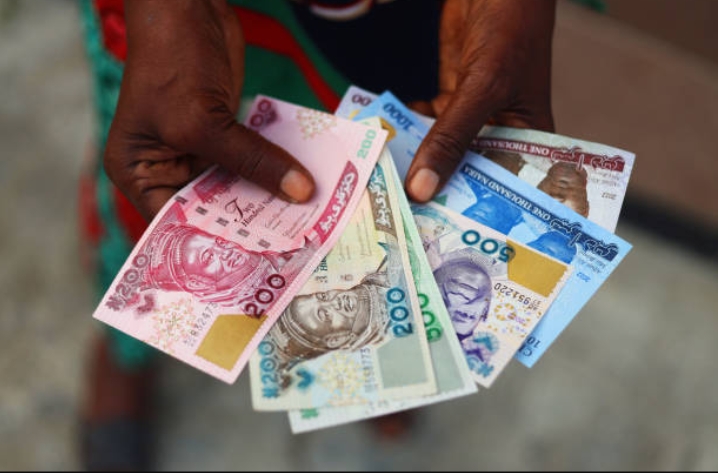According to a new GDP report released by the National Bureau of Statistics on Thursday, the country’s Gross Domestic Product growth decreased to 2.74 percent in 2023 from 3.10 percent in 2022.
Since 2020, when the COVID-19 pandemic caused the economy to contract and enter a recession by -1.92 percent, this growth has been the slowest.
According to the Nigerian Bureau of Statistics’ “Nigerian Gross Domestic Product Report, (Q4 2023)” published on Thursday, the economy’s growth in the manufacturing and agricultural sectors slowed down in 2023, and the performance of the service sectors also sharply declined during that year.
It stated that the agriculture sector grew by 1.13 percent in 2023, down from 1.88 percent in 2022, while the manufacturing sector shrank by 1.40 percent in 2023, down from 2.45 percent in 2022 on an annual basis.
Furthermore, despite recording an average daily oil production of 1.55 million barrels, the oil sector grew by -2.22 percent in 2023 compared to -19.22 percent in 2022. The non-oil sector grew by 3.04 percent on an annual basis in 2023, while the oil sector grew by -2.22 percent in 2022.
Compared to -19.22 percent in 2022, the oil sector grew by -2.22 percent annually in 2023. In comparison to the 4.84 percent growth seen in 2022, the non-oil sector growth in 2023 was likewise 3.04 percent.
The World Bank, International Monetary Fund, and African Development Bank have all dropped their global GDP growth estimates for the country as a whole.The World Bank predicted in its Africa Pulse Report April 2023 edition, titled “Leveraging resource wealth during the low carbon transition,” that the Nigerian economy would grow by 2.9% in 2023 as opposed to 3.3% in 2022.
In its April 2023 World Economic Outlook report, “A Rocky Recovery,” the International Monetary Fund maintained its 3.2% growth prediction for Nigeria’s economy in 2023.
The GDP, or rate of economic growth, in Nigeria was predicted by the African Development Bank in January to increase marginally to 3.1% in 2023.
The bank also noted that the nation’s growth prospects were weakened by growing insecurity and uncertainty regarding the continuation of policies following the election.In comparison to the fourth quarter of 2022, the industry and services sectors both increased their contributions to the overall GDP in the fourth quarter of 2023, according to the statistical body. The GDP grew by 3.46 percent (year over year) in real terms in the fourth quarter of 2023.
This growth rate is higher than the 2.54% growth in the third quarter of 2023 and lower than the 3.52% growth in the fourth quarter of 2022, according to the statement. Driven primarily by the services sector, which grew by 3.98 percent and made up 56.55 percent of the GDP overall in the fourth quarter of 2023, the GDP performed well.
Dr. Muda Yusuf, Director of the Center for Promotion of Private Enterprise, commented on the growth in the fourth quarter despite the current economic climate, saying, “The GDP report is a year-on-year comparison.” Looking at the fourth quarters of 2022 and 2023, you will see that the country was gearing up for the general elections.
A lot of people were slowing down because we were already in the campaign period, which brought with it all kinds of problems, and there was a great deal of economic uncertainty at that time.
Because you are comparing that to the fourth quarter of 2023, those factors actually reduced economic activity.Professor Perekunah Eregha, the director of the PhD program at Pan Atlantic University and an economist, also discussed the main causes of the potential decline.
Prof. Eregha blamed factors like high production costs for the expected slow growth. If the nation does not increase its oil production, he cautioned, there might be danger ahead.

Thank you for your sharing. I am worried that I lack creative ideas. It is your article that makes me full of hope. Thank you. But, I have a question, can you help me?